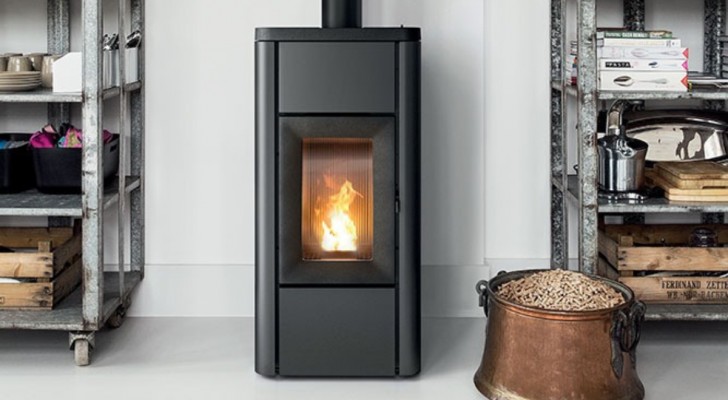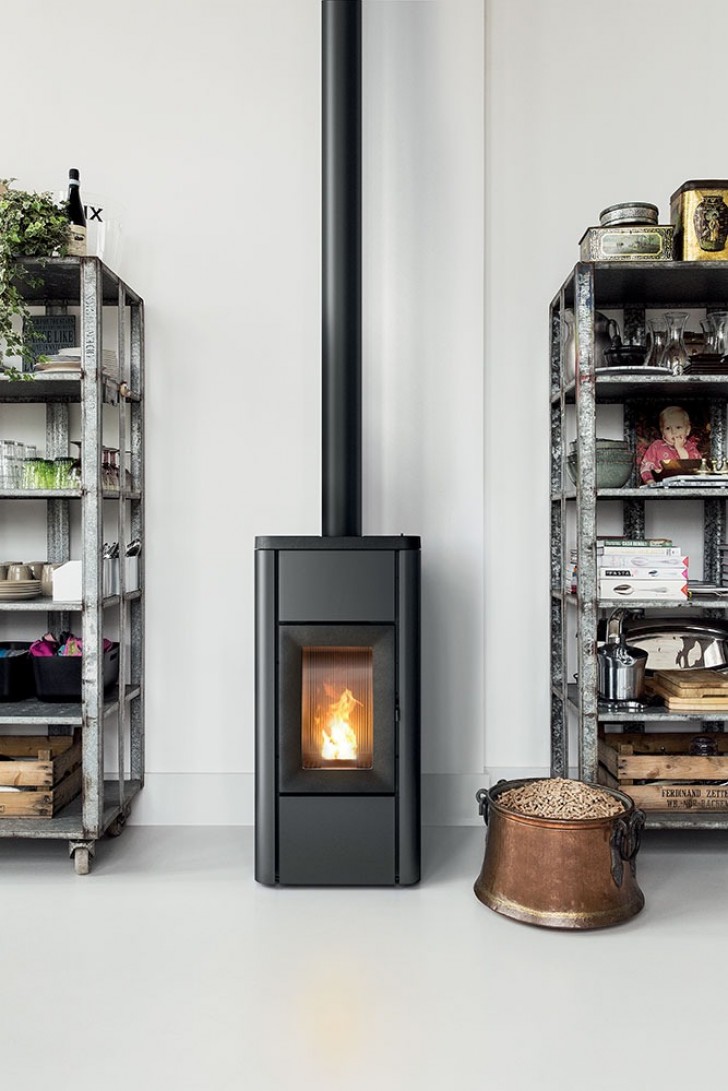Do you want to heat your rooms faster with a pellet stove? Use a fan

Among all the heating systems used in winter, pellet stoves are the most popular: they heat as well as any wood-burning fireplace/stove, but are much easier to manage and maintain. Given this, they are a good alternative to using expensive electric or gas heating systems.
That said, pellet stoves also consume, both the fuel and - to a lesser extent - electricity. So, using pellet stoves efficiently is important, and we provide some tips in achieving this below:
Use a fan to heat up a room more quickly

The main way in which heat sources spread the heat is through convective motion (much more than by the radiation) and this motion can be "forced" by using a fan. Doing this, the warm air from the stove will spread faster in any environment (or room).
This "forcing" can be achieved in two ways:
- With ceiling fans: heat that accumulates at the ceiling level will be forced back towards the floor;
- With floor fans: place a fan on a low-laying surface or the floor. The fan will push the colder air upwards, or back towards the stove.
Floor fans should not be placed directly in front of the heat source, but rather near a wall opposite the source, where the air is colder, in order to push it away.
Some disadvantages to consider
As mentioned, if we blow the cool air away from the coldest parts of the room, so that it is replaced by the warm air, we set in motion a circulation pattern that warms areas up more quickly. When the room reaches the desired temperature, power consumption can be reduced (less fuel needed, fans turned off).
Of course, the fan consumes energy too. Given this, we need to consider which of the two "costs" has more impact on us. Additionally, getting a room properly heated throughout may necessitate frequent adjustments to the fan's direction or speed, adding to the overall inconvenience.
Another case in which it is best to avoid using the fan is in homes that tend to be very dry: the drier the air, the more quickly our body's humidity will evaporate, potentially leading to flaking and/or cracking of our skin.
Finally, ensure that your walls are properly thermally insulated. If not, the walls' temperature will be a few degrees lower than that of the room, so blowing warm air up against them will end up the dispersing heat!
Have you ever tried this fan-heating method at home?